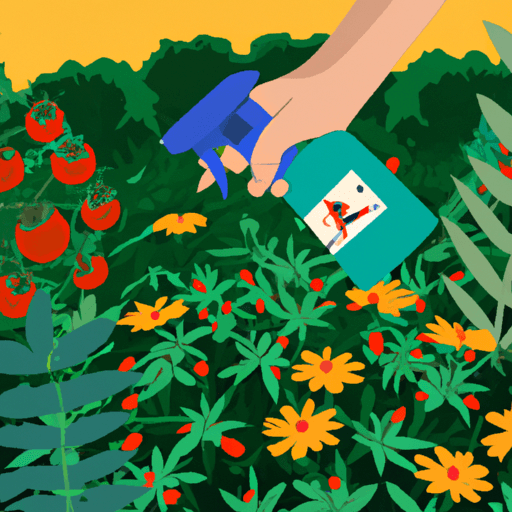Negative Impacts of Pesticides in Home Gardening
For many years, the widespread use of pesticides in home gardening has been accepted as a necessary measure to control pests. But today, there is an increasing concern about the potential dangers that the use of these chemical substances could present, many of which are often overlooked by gardeners. This article aims to explore the risks and impacts of pesticides, and to present alternative eco-friendly pest control methods.
Health Risks of Pesticides
One of the foremost concerns about the use of pesticides is the threat they pose to human and pet health. Many pesticides contain harmful chemicals that can contaminate the air, soil, and water. Prolonged exposure to these chemicals can lead to a variety of health problems. These can include respiratory issues, skin irritations, and in some extreme cases, neurological diseases and certain types of cancer.
Environmental Damage
Another significant consequence of pesticide use is its detrimental impact on the environment. By contaminating the soil, pesticides can disturb the natural balance of nutrients in the ground. Also, they can seep into water sources, affecting aquatic ecosystems by harming fish and other water-dwelling organisms. Moreover, pesticides can contribute to air pollution and can cause harm to non-target plants and wildlife.
Harm to Beneficial Garden Organisms
Pesticides don’t discriminate between harmful and beneficial organisms. A perfect illustration of this is the harm done to pollinators, such as bees, by the use of pesticides in gardens. Other beneficial organisms like earthworms, which naturally enhance soil quality, can also suffer from exposure to pesticides.
Eco-friendly Alternatives to Pesticides
Given the risks and impacts of pesticides, gardeners should consider healthier, environmentally friendly alternatives for pest control.
- Biological control: This involves the introduction of natural predators to control pest population. Ladybugs, spiders, and certain species of birds are known to feed on common garden pests.
- Companion Planting: In this method, certain plants are grown together because they help deter pests from each other.
- Organic pesticides: These are derived from plants and minerals and pose less risk to humans, pets, and the environment.
In conclusion, while pesticides may be effective in controlling pests, their potential harm to human and pet health, the environment, and beneficial garden organisms cannot be ignored. Thus, it is crucial that gardeners consider eco-friendly alternatives in their pest control strategies. These alternatives can provide effective pest control while ensuring safer and healthier gardens.


















Comments
Leave a Comment